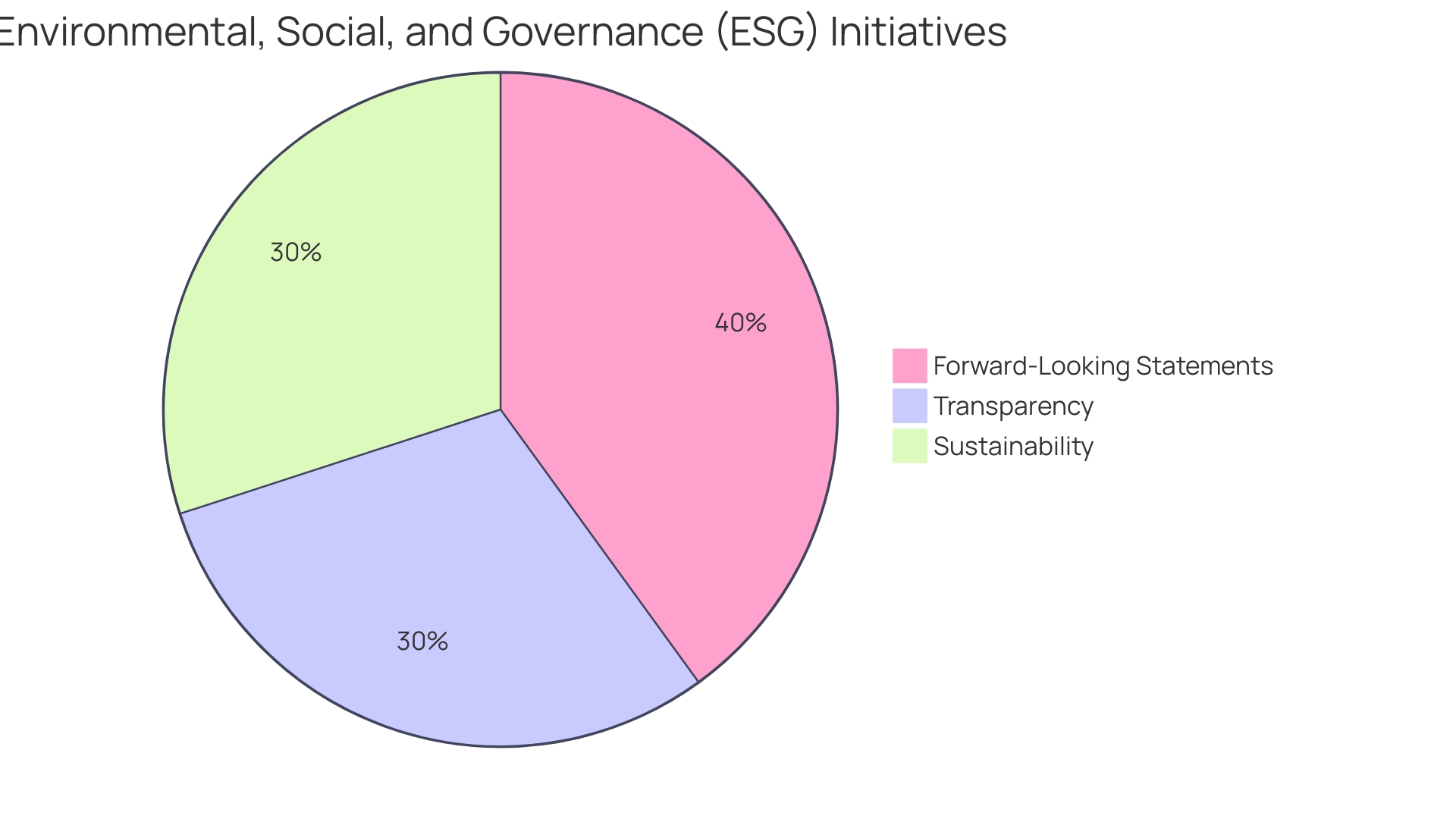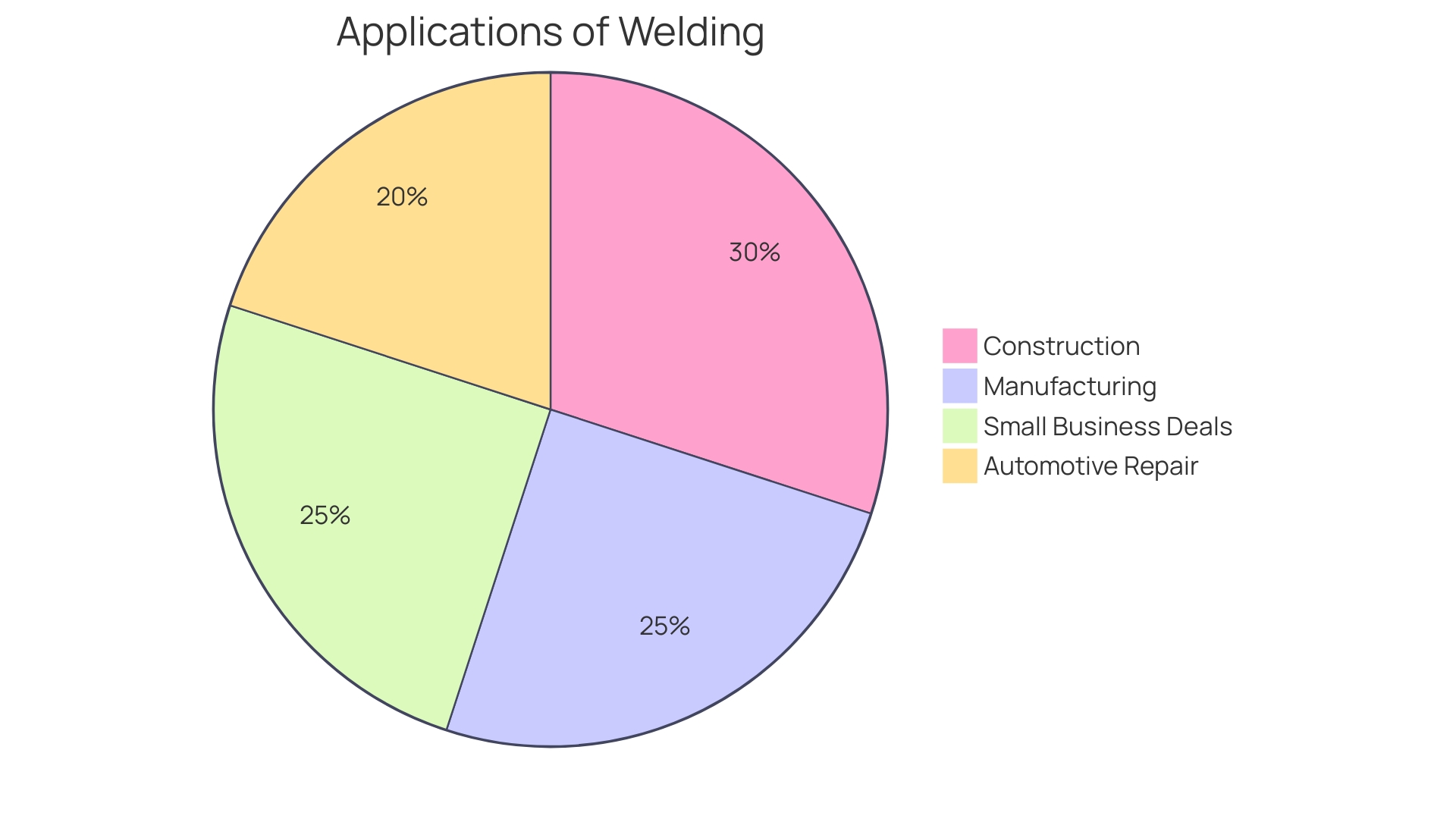Introduction
Renting welding equipment offers numerous benefits for businesses in various industries. Not only does it provide cost-efficiency, but it also allows companies to stay at the forefront of technological advancements. With welding equipment rentals, businesses gain access to a wide range of tools tailored for specific applications, from intricate automotive projects to robust construction tasks.
This flexibility is crucial in an industry that combines artistry and science and impacts everything from our vehicles to the infrastructure around us. Moreover, renting supports sustainability and resource allocation, enabling businesses to align with modern values of practicality and environmental consciousness. By integrating the latest advancements like handheld laser welding, companies can enhance productivity and efficiency, even with a workforce that may lack extensive welding experience.
Renting welding equipment is not only a smart financial move, but it also allows businesses to embrace a future where quality and efficiency coalesce.
Benefits of Renting Welding Equipment
Embracing welder leasing not only relieves financial pressures with its cost-effectiveness but also propels enterprises to the forefront of technological adoption. By renting, companies gain access to a range of equipment tailored for specific applications—from intricate, custom automotive projects to robust construction tasks. This flexibility is critical in an industry that's both an art form and a science, impacting everything from our vehicles to the infrastructure around us. Moreover, the rental model supports the evergreen pursuit of sustainability and judicious resource allocation, enabling organizations to align with modern values of practicality and environmental consciousness. By incorporating the most recent advancements like handheld laser joining, companies can quickly expand their operations, even with a workforce that may lack extensive experience in the process. The strategic move to rent welding tools, hence, is not just a recognition of financial caution but a stride towards amplifying productivity and embracing a future where quality and efficiency converge.

Flexibility and Scalability in Welding Projects
Welder rentals offer a strategic solution for businesses to navigate the fluctuating demands of various welding projects. This service is not just a means to access tools; it's a gateway to embracing flexibility and scalability in operations. Through renting, companies have the ability to customize their inventory to match the specific requirements of each task, whether it's a small residential project or a large-scale commercial endeavor. The flexibility of equipment rental services ensures that businesses can increase their capabilities for complex jobs or reduce for simpler tasks without the financial burden of owning an underused fleet of machinery.
The joining industry is a dynamic and critical component of sectors such as construction, automotive repair, and manufacturing. Each of these fields relies on the strength and quality of welds to ensure the integrity of structures, vehicles, and products. With the arrival of technological advancements like handheld laser joining, the industry is witnessing a shift towards more efficient and less labor-intensive processes. This innovation is particularly valuable in today's market where there's a scarcity of skilled labor. It enables less experienced welders to produce high-quality results with minimal training, revolutionizing productivity and profitability for businesses that incorporate this technology.
The advantages of renting welding machinery are supported by the current market trend towards practicality and financial savvy. Renting fills a significant gap by providing a cost-efficient alternative to purchasing expensive equipment for temporary needs. This practice aligns with the growing emphasis on sustainability and resource management, enabling companies to allocate their capital more wisely. Embracing welder leasing is not just a matter of accessing the right tools; it's about adopting a strategic approach to resource allocation that aligns with the ebb and flow of market demands and project scopes.
Reducing Overhead Costs and Storage Needs
Welders for hire act as a strategic answer to control expenses and optimize resource allocation for businesses. By renting, companies avoid the hefty initial investment in welding equipment, as well as sidestep ongoing expenses like maintenance and repairs. Furthermore, the leasing model aligns with current market trends towards sustainability and financial prudence. This kind of method directly leads to increased profitability as it enables enterprises to concentrate their capital on primary operations.
The concept of renting rather than owning has seen a notable rise, driven by the recognition of its cost-efficiency and practicality. For example, in the changing world of joining technology, where state-of-the-art portable laser joining has recently gained attention, the leasing choice offers a chance for businesses to utilize innovative technologies without a substantial initial investment. This is especially beneficial in sectors where quick, quality welds are essential but the access to skilled labor is limited.
Atlas Copco's I-Rent platform exemplifies the modernization of the leasing industry, offering real-time tracking and sustainability insights that empower businesses to manage their projects with greater efficiency and environmental consciousness. With such advancements, the rental of welding tools not only saves on storage space but also contributes to smarter project management and data-driven decision-making.
From construction to automotive repair, the act of joining metal parts together remains a core activity. Renting machinery enables a versatile reaction to project-specific requirements without the obligation of ownership. As the industry keeps evolving, from ancient times to today's laser joining, leasing services adjust to offer the most up-to-date technology, empowering enterprises to remain competitive and efficient.

Improved Efficiency and Productivity
Welding operations are increasingly turning to innovative technologies and the use of tools to enhance their productivity and efficiency. By utilizing the choice to lease well-maintained welding machinery, businesses can bypass the downtime linked to tool malfunctions, as contemporary and high-quality tools are easily accessible through rental services. For instance, companies like Boels Rental Group provide a broad array of equipment, ensuring that welders have access to the best tools for their projects.
Furthermore, embracing sophisticated welding methods, such as the utilization of robots in the welding process, has proven to be a wise investment. These systems deliver precision and repeatability, crucial for high-quality welds, and are backed by comprehensive training from robotic integrators and vendors. This reduces the risk associated with new technology adoption and enhances the operation's productivity. As technology continues to advance, even handheld laser joining has become available, enabling less experienced welders to perform quality joins quickly and with minimal training, as noted by industry experts.
The decision to use gasoline engines, electric power, or battery power in machinery should be informed by the specific needs of the project, considering factors like portability and access to power sources. Gasoline engine MIG welders are ideal for on-site work where electricity is scarce, while electric-powered MIG welders are more suited for indoor environments with electrical infrastructure.
Atlas Copco Rental's I-Rent platform exemplifies the integration of digital solutions to optimize project management. The platform offers real-time tracking of device performance and sustainability insights, enabling project managers to make informed decisions quickly and to optimize their operations for better environmental outcomes.
Ultimately, the decision to rent welding equipment or invest in the latest technology is a strategic choice that can lead to significant cost savings and a strong return on investment, as evidenced by the success stories of leading companies in the industry.
Conclusion
In conclusion, renting welding equipment offers numerous benefits for businesses. It provides cost-efficiency, access to the latest technology, and flexibility in tailoring equipment to specific applications. Renting supports sustainability and resource allocation, allowing businesses to enhance productivity and efficiency.
It reduces overhead costs and storage needs, while also providing an opportunity to leverage new technologies without a significant upfront investment. Renting well-maintained equipment enhances efficiency and productivity, enabling businesses to make quick, quality welds. Overall, renting welding equipment is a strategic choice that leads to cost savings and a strong return on investment.
By embracing renting, businesses can enhance their productivity, efficiency, and profitability in an industry that continues to innovate.




